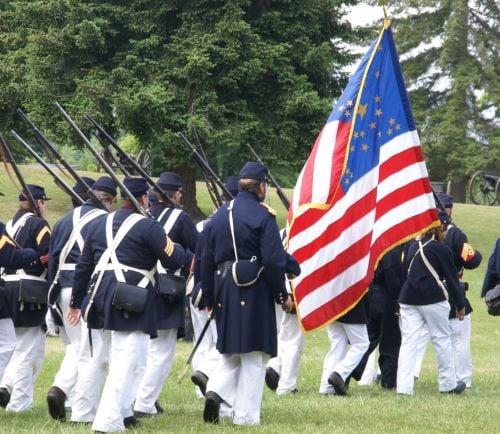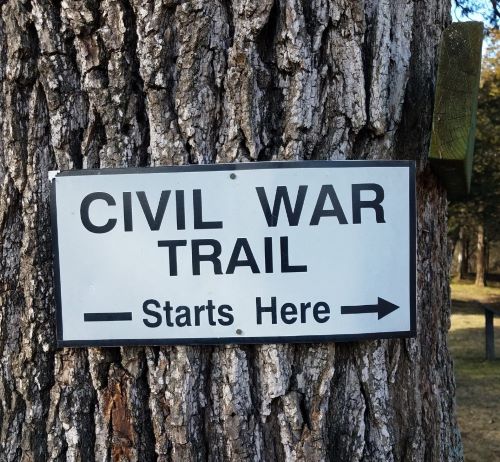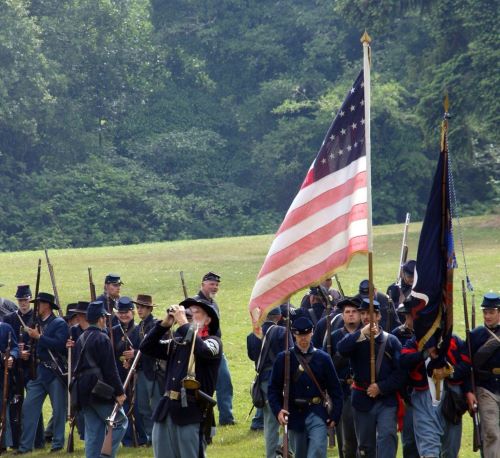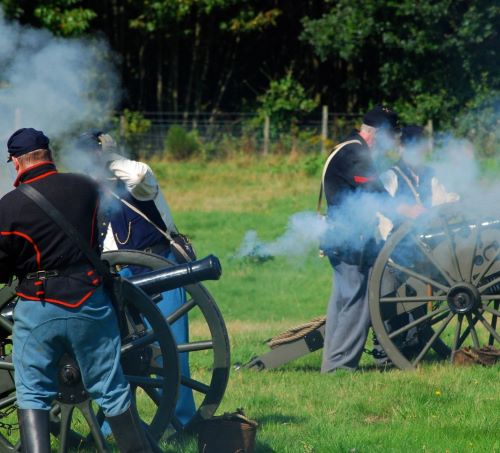Explore Nashville’s Historic Civil War Tour: Lotz House, Carter House & Carnton Admission Guide
Discover Nashville's rich Civil War history on a guided tour featuring Lotz House, Carter House, and Carnton. Learn admission details, insider tips, and explore the stories behind these iconic landmarks. Plan your visit and uncover hidden historical gems.
UNITED STATESTENNESSEEINDOOR ACTIVITIES
4/16/20256 min read
DISCLOSURE:
There may be affiliate links on this website. If you buy something using these links we could receive a small commission at zero cost to you.
Introduction to the Nashville Civil War Tour
The Nashville Civil War Tour offers a profound glimpse into a crucial chapter of American history, particularly focusing on the Battle of Franklin, which occurred in November 1864. This conflict was one of the decisive moments in the Civil War, marking a significant turning point that ultimately contributed to the outcome of the war. Nashville, strategically located, became a focal point for both Union and Confederate forces, highlighting its importance during this tumultuous time.
As you embark on this enlightening journey, you will encounter key historical sites that bear witness to the events of the Civil War, notably the Lotz House, Carter House, and Carnton. Each of these locations provides personal narratives and rich histories that help visitors connect with the past on a profoundly emotional level. The Lotz House, for instance, served as a field hospital during the Battle of Franklin, and its walls resonate with the stories of trauma, bravery, and perseverance displayed by those who experienced the conflict firsthand.
In addition, the Carter House stood on the front lines of the battle and bears scars from the combat that took place in its vicinity, offering vital insights into the human experiences that characterized this period. Similarly, Carnton played a significant role in both the battle and the subsequent care for wounded soldiers, establishing its significance as a key location in the narrative of the Civil War.
This full-day tour invites visitors to engage intimately with Nashville's rich Civil War heritage and realize the ongoing impact that these historical events have on contemporary society. Remember that stepping onto the grounds of these historic landmarks not only brings the past to life but also deepens one’s understanding of the enduring values and lessons drawn from such pivotal moments in American history.
Exploring the Historic Lotz House
The Lotz House stands as a poignant reminder of the tumultuous times during the American Civil War, particularly during the Battle of Franklin in November 1864. Located in Franklin, Tennessee, this historic site not only served as a residence for the Lotz family but also played a critical role as a makeshift hospital during the battle. The house was constructed in 1858 by German immigrant Johann Lotz, whose family experienced the ravages of war firsthand. Their narratives reflect the devastating impact of conflict on civilian lives, a theme that resonates throughout the site.
One of the most striking features of the Lotz House is its architecture, reflecting the typical mid-19th century style with Greek Revival influences. Visitors can observe the original design elements, such as the grand staircase and intricate woodwork. However, what captivates many are the preserved bullet and cannonball holes that remain embedded in the walls—silent witnesses to the chaos that engulfed the area. These remnants serve as a tangible connection to the past, allowing guests to envision the struggles faced during the battle.
The Tragic Legacy of Carter House
The Carter House, located in Franklin, Tennessee, stands as a poignant reminder of the Civil War's impact on American families and communities. Built in the early 19th century, this historic house became a central stage during the Battle of Franklin in November 1864, a conflict that marked one of the bloodiest encounters of the war. The narrative of the Carter House is not merely about its architecture but rather the harrowing experiences faced by the Carter family during this tumultuous time.
On the evening of November 30, 1864, the Carter family found themselves at the epicenter of a fierce battle as Confederate and Union troops clashed in their vicinity. As the fighting raged on, the Carter House served as both a shelter and a makeshift hospital. The family witnessed the tragedy and chaos surrounding them, transforming their lives and home forever. Artifacts from the battle, including musket balls and cannon remnants, are displayed throughout the property, offering visitors a glimpse into the harrowing events that unfolded.
The grounds of the Carter House are equally significant, featuring a historic garden and the remnants of the original farmstead, both of which have withstood the passage of time. Today, the house stands as a museum, actively preserving its history through guided tours and educational programs that delve into the poignant stories of the Carter family and the soldiers who fought nearby. Visitors are often struck by the emotional weight of the location, as the legacy of sacrifice and resilience remains etched in the very walls of the home.
Guests can explore the timeworn beauty of the Carter House, where each room tells a story of love, loss, and survival. The experience is enhanced by knowledgeable guides who share captivating accounts of the Carter family and the events that forever altered their lives. Through these narratives, the legacy of the Carter House continues to resonate, inviting reflection on the broader human experiences that emerged from the Civil War.
Carnton: A Reflection on War and Resilience
Carnton, located just outside Franklin, Tennessee, stands as a poignant symbol of the Civil War's far-reaching effects on the American South. Originally a plantation owned by the McGavock family, Carnton became a significant site during the Battle of Franklin, a key conflict occurring on November 30, 1864. The plantation house itself served as a makeshift hospital for the Confederate army, treating thousands of wounded soldiers in the aftermath of the battle. This transformation from a symbol of plantation life to a site of healing highlights the resilience of the human spirit in times of unprecedented turmoil.
Visitors to Carnton can explore the beautiful grounds that tell the story of both the McGavock family and the soldiers who were treated on the premises. The gardens surrounding the house offer a picturesque backdrop while also serving as a reminder of the battle's harsh realities. Restored to reflect their historical beauty, these gardens allow guests to engage with the past as they walk through the serene landscapes that once echoed with the sounds of war.
The interpretive center at Carnton provides a wealth of information for those wishing to delve deeper into the history of the site and its significance in the context of the Civil War. Exhibits and artifacts shed light on the lives of the families at Carnton, the brutal realities of war, and the efforts toward healing that followed. Tourists planning to visit should take note of the various programs and guided tours available, which serve to enrich the experience with narrative accounts of history and personal stories from the era.
In conclusion, Carnton is not only a testament to the past but also a place that invites reflection on human resilience in the face of conflict. It is essential for visitors to appreciate the historical importance of this site and to remember the stories that contribute to our understanding of the Civil War's enduring legacy.
Summary:
Travel back to 1864 on a full‑day excursion from Nashville to the site of the Battle of Franklin—one of the Confederacy’s greatest losses. Walk amidst the bullet‑pocked walls, cannonball scars, and blood‑stained floors that still bear the battle’s grim legacy. Stroll through downtown Franklin to browse boutiques, savor Southern fare, and explore additional historic landmarks. Your expert guide will illuminate the “five bloodiest hours” of the Civil War, then lead you through Lotz House and Carter House—where wartime damage remains etched into their walls—and on to Carnton Plantation to uncover its pivotal Civil War role and post‑war history. An unforgettable journey for anyone captivated by America’s past.time and money with the Copenhagen Card-Discover—get complimentary entry to over 80 museums and attractions, enjoy scenic canal cruises through the city, benefit from free public transport across the entire Capital Region, and travel hassle-free between the airport and downtown.
Includes:
7-Hour Guided Civil War & History Day Tour from Nashville
Learn about The Battle of Franklin and how it included the bloodiest hours of the Civil War
Visit 3 historical homes located in the town of Franklin, TN
Admission to Lotz House
More Nashville? Hotels, Activities. Check Down Below!








